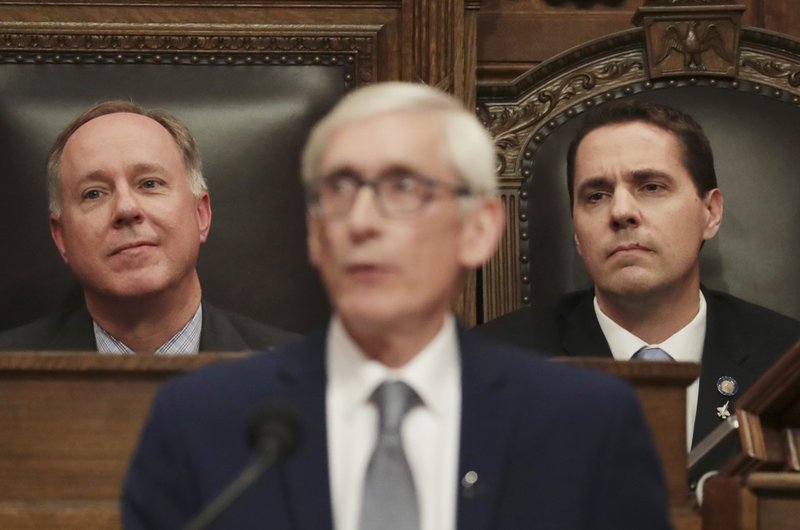Politics
Wisconsin Gov. Evers vetoes Republican bills on schools, COVID-19

MADISON, Wis. (AP) — Gov. Tony Evers vetoed 28 Republican bills on Friday, including measures to dissolve the Milwaukee school district, make private voucher schools available to everyone regardless of income and prevent certain COVID-19 vaccine mandates.
Other measures the Democratic Evers vetoed would have made it more difficult to obtain unemployment benefits, limited liability for gun and ammunition manufacturers and sellers, and prohibited the teaching of the concept known as critical race theory at the University of Wisconsin System and Wisconsin Technical College System.
He also vetoed a “parental bill of rights” that would have allowed parents to determine what names and pronouns their children are referred to at school and allow their children to sit out certain lessons the parents find objectionable.
Evers called the measure divisive.
“Politicians on both sides of the aisle have to stop using our kids as political pawns,” Evers wrote. “I am vetoing this bill in its entirety because I object to sowing division in our schools, which only hurts our kids and learning in our classrooms.”
Nearly all of the bills Evers vetoed passed without any Democratic support. Republicans do not have the votes to override his vetoes. The vetoes come a week after he vetoed 43 other Republican bills, including a package that would have overhauled how elections are run and made it harder to vote absentee.
Republicans pushed many of the bills knowing they would be vetoed and that they could campaign on the issues this fall.
One of the Republicans running to challenge Evers, former Lt. Gov. Rebecca Kleefisch, was quick to seize on the latest vetoes.
“Tony Evers’ vetoes make it clear that he thinks education bureaucrats should have more of a say in a child’s education than their own parents,” she tweeted. “As long as he’s governor, he will never stop putting the education establishment ahead of kids and their parents.”
Evers, a former teacher, school administrator, superintendent and state superintendent of schools, defended the various education-related vetoes, saying the measures were not in the best interest of students or parents. Evers has long advocated for public schools over the voucher program, which diverts taxpayer money to pay for a private school education for students who qualify.
One bill Evers vetoed would have broken the Milwaukee district — Wisconsin’s largest — into eight smaller districts. Republicans touted it as a way to increase accountability and improve results for students.
“This bill represents yet another attempt by this Legislature to politicize our schools and an unprecedented intrusion on local control in our public school districts,” Evers said in his veto message to lawmakers.
Evers also vetoed a package of bills affecting Medicaid and unemployment benefits, including one that would have tied the number of weekly unemployment benefits available to the state’s overall unemployment rate. Another bill would have required the state health department to enforce a federal work requirement, including drug screenings, for people to receive benefits under the state’s FoodShare program.
Evers vetoed bills that would have prevented discrimination against someone who refuses to be vaccinated against COVID-19 and that would have prohibited the tying of government services to vaccination or requiring proof of vaccination, sometimes referred to as a vaccine passport.
Evers said in his veto messages that he objected to the Legislature’s attempts to “inject partisan politics and rhetoric into public health practices.”
Evers has now vetoed 126 bills over the two legislative sessions, the most in modern history and the highest since 90 were vetoed in 1927, according to the Legislative Reference Bureau.

